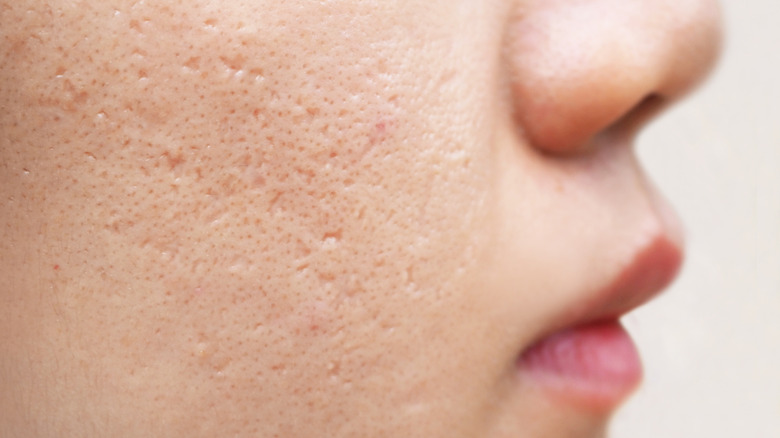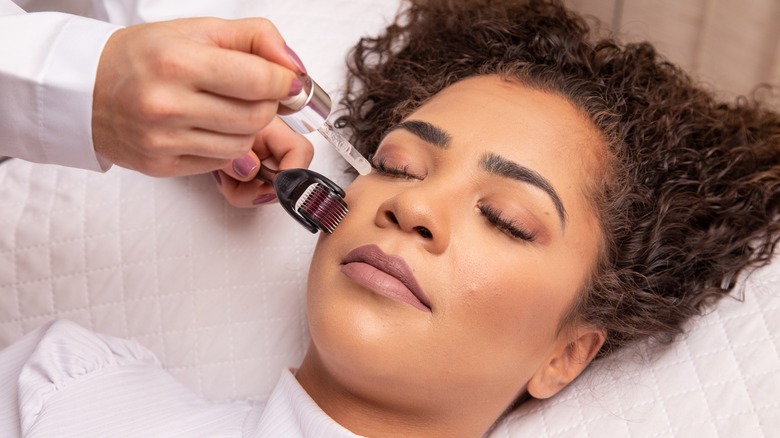Do Ice Pick Scars Go Away?
Acne doesn't discriminate. As the most common skin condition (according to the American Academy of Dermatology Association), almost everyone gets blemishes at some point or another. And acne doesn't care if you have a big date, a job interview, or an important photo shoot — it might pop up on your face anyway.
The good news is that acne spots are only temporary, right? Well, not so fast. While Cleveland Clinic points out that most pimples only last a few days on the skin, acne scars can hang around much longer. Think of them as the ghosts of old acne breakouts, haunting you long after the acne clears up.
Scars are common among people with acne, and one in five who have struggled with breakouts will get acne scars, according to Acne Support. These lingering spots can be difficult to cover up and even harder to erase from your complexion — and one of the most difficult types to deal with is ice pick scarring.
What are ice pick scars?
Ice pick scars earned their name from their unique appearance on the skin. According to WebMD, these scars are sunken or pitted marks, as if the skin was pierced by an ice pick. The indentations are small — less than two millimeters wide — but deeper than all other types of scars (via Healthline).
Ice pick scars are caused by cystic acne and other types of acne that form deep in the pores. According to Medical News Today, people who suffer from severe acne are most at risk for developing these pits. People whose skin is deficient in collagen may also be more likely to develop ice pick scars. Other risk factors include picking at acne spots, having a close family member with acne scars, or not receiving proper acne treatment.
Ice pick scars are especially common on highly visible areas of the forehead and upper cheeks, and that can make treating these scars feel even more crucial (via Acne Support).
How to get rid of ice pick scars
According to WebMD, ice pick scars don't usually go away on their own. Their depth in the skin makes them especially difficult to get rid of, and treatments that work on other superficial types of scars don't often work well on ice pick scars.
However, there are some treatments that can minimize their appearance. Many of the most effective treatments require a trip to a dermatologist's office. These include punch excision, punch grafting, TCA CROSS sessions, laser resurfacing, and radiofrequency therapy (via Medical News Today). Other options, such as microneedling and chemical peels, can be done either at a clinic or at home, per Healthline. Natural and over-the-counter remedies are rarely strong enough to heal these acne scars.
Perhaps the best way to deal with ice pick scars is to prevent them from forming in the first place. Verywell Health suggests spot-treating acne blemishes with tea tree oil to reduce inflammation and scarring later, following an anti-acne skincare routine, avoiding popping pimples, and seeing a doctor for severe persistent breakouts.


